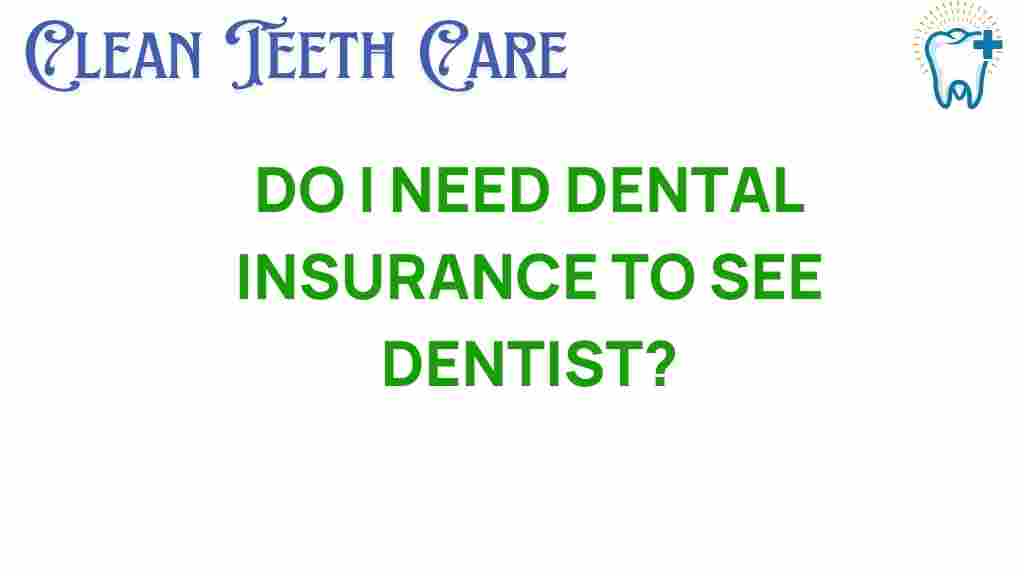Is Dental Insurance Essential for Your Next Dentist Visit?
When considering a visit to the dentist, one of the crucial factors that come into play is the type of dental insurance you have—or if you have it at all. With the rising costs of dental services, understanding the implications of dental insurance on your overall oral health is essential. This article explores the necessity of dental insurance, its impact on cost of care, and how it influences patient options during a dentist visit.
The Importance of Dental Insurance
Dental insurance can significantly affect your financial planning and the care you receive. Here are some critical reasons why dental insurance is often seen as a necessity:
- Cost Savings: With dental insurance, many routine procedures are covered, reducing out-of-pocket expenses.
- Access to Preventive Care: Regular check-ups and cleanings are often fully covered, helping to maintain oral health.
- Financial Planning: Knowing your coverage allows for better budgeting and planning for future dental services.
- Emergency Coverage: Dental emergencies can be costly, but insurance can mitigate these expenses significantly.
Understanding Dental Insurance Plans
Before your next dentist visit, it is vital to understand the different types of dental insurance plans available:
- Preventive Plans: These often cover basic services like cleanings and exams.
- Comprehensive Plans: These plans cover a wider range of services, including major procedures like root canals and crowns.
- Discount Plans: Instead of traditional insurance, these plans offer discounts on services from participating dentists.
Each plan has its own unique benefits and limitations, so reviewing the details is essential for maximizing your dentist visit.
Cost of Care Without Dental Insurance
For those who choose to forgo dental insurance, the cost of care can be substantial. Here’s a breakdown of typical expenses:
- Routine Cleanings: $75 – $200
- X-rays: $50 – $150
- Fillings: $100 – $500 (depending on the material used)
- Root Canals: $300 – $2,000
- Crowns: $500 – $3,000
As you can see, without dental insurance, the financial burden can quickly add up, making preventive care and early interventions more challenging.
Patient Options During a Dentist Visit
Having dental insurance opens up various patient options during a dentist visit. Here’s what you can expect:
- Flexible Payment Plans: Many dentists offer payment plans for those with insurance, allowing you to spread out costs.
- Prior Authorization: Insurance may require pre-approval for certain procedures, ensuring coverage before you proceed.
- Access to Specialists: Insurance often provides referrals to specialists at reduced costs.
These options can greatly enhance the experience of your dentist visit and ensure you receive the necessary care without excessive financial strain.
Preventive Care: A Cornerstone of Oral Health
One of the most significant benefits of dental insurance is its emphasis on preventive care. Regular check-ups and cleanings can help catch problems early before they become more severe and costly. Here are some preventive services typically covered by insurance:
- Routine cleanings
- Annual exams
- X-rays
- Fluoride treatments
- Sealants
By prioritizing preventive care, patients can maintain better oral health and potentially reduce the need for extensive treatments down the line.
Financial Planning for Dental Care
When considering dental insurance, it’s essential to incorporate it into your overall financial planning. Here are some tips to guide you:
- Assess Your Needs: Consider your dental history and the frequency of your visits to determine the type of plan that suits you best.
- Compare Plans: Look at different plans to find one that offers the best coverage for your specific needs.
- Budget for Out-of-Pocket Costs: Even with insurance, some costs may be your responsibility, so plan accordingly.
- Utilize HSA/FSA Accounts: If available, consider using Health Savings Accounts (HSA) or Flexible Spending Accounts (FSA) to cover out-of-pocket expenses.
By being proactive, you can minimize financial stress related to your dentist visit.
What If You Can’t Afford Dental Insurance?
If you find yourself unable to afford dental insurance, there are still options available:
- Community Health Clinics: Many areas have clinics that offer discounted or sliding scale fees based on income.
- Dental Schools: Students in dental schools often provide services at a reduced cost under supervision.
- Payment Plans: Speak with your dentist about payment plans or financing options for your care.
- Discount Dental Plans: These plans can provide significant savings on services without the monthly premiums of traditional insurance.
These options can help ensure you still receive the care you need, even without traditional dental insurance.
Conclusion
In summary, dental insurance is a critical component of managing your oral health and the cost of care associated with dental services. While not everyone may find it essential, understanding its benefits can help you make informed decisions regarding your health and finances.
Whether you choose to invest in dental insurance or explore alternative options, prioritizing your oral health will pay dividends in the long run. Regular visits to the dentist will help you stay on top of your dental health and avoid more significant issues down the line.
For more information on dental services and financial planning, check out this resource.
Remember, investing in your smile is investing in your overall well-being!
This article is in the category Treatments and created by CleanTeethCare Team
